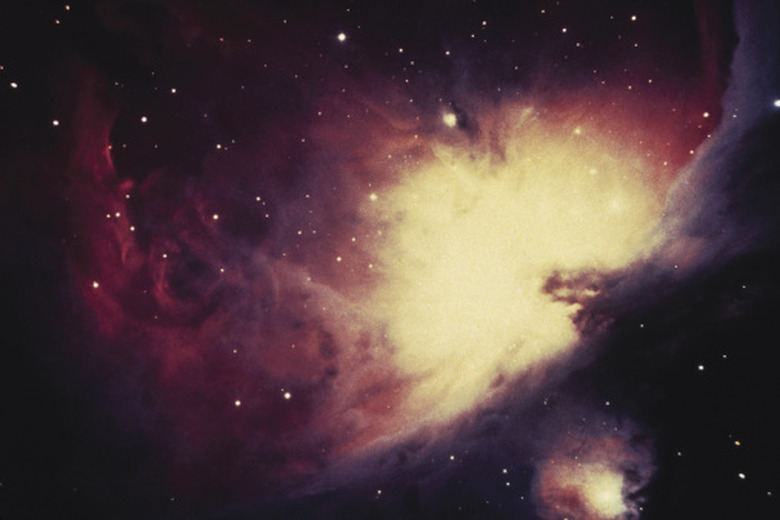Constellations Near Orion
With its bright three-star belt, Orion is the most easily recognized constellation in the winter sky. Orion also contains the brilliant red supergiant Betelgeuse, along with the bright Bellatrix and Rigel. Rigel, which is located at Orion's left foot, forms part of the Winter Hexagon, a group of six bright stars located in constellations surrounding Orion that make them easily recognizable.
Canis Major and Canis Minor
Canis Major and Canis Minor
Canis Major is located to the lower left of Orion; its name means "Big Dog" or "Greater Dog." Canis Major is easy to recognize as it contains the Dog Star, Sirius, which is the brightest star in the sky. To the left of Orion and above Canis Major is Canis Minor, the "Little Dog" or "Lesser Dog." Canis Minor contains only two easily visible stars, but one of them is the bright Procyon. Both Sirius and Procyon are part of the Winter Hexagon.
Gemini
Gemini
To the upper left of Orion is the constellation Gemini, the twins. The stars Castor and Pollux — named after the twins — make up their heads; the brighter of the two, Pollux, is part of the Winter Hexagon. Caster and Pollux are said to be the sons of Leda and Jupiter and the half-brothers of Helen of Troy. The twins are the patron saints of sailors and were held in high esteem by Roman horse solders.
Auriga
Auriga
Above Orion's head is the constellation Auriga, the charioteer; the constellation is named in memory of the inventor of the chariot. It is also called the goat herder. This constellation contains Capella, another star in the Winter Hexagon. Capella means "she-goat"; nearby is a small triangle of stars called the Kids (baby goats). The faint winter Milky Way runs through Auriga.
Taurus
Taurus
Taurus the bull sits on Orion's upper right, above his shield. The bull is the form that Jupiter took when he swam from Phoenicia to Crete carrying Princess Europa. This constellation is easily recognizable by the presence of Aldebaran, the last star in the Winter Hexagon, which makes up Taurus's right eye. Taurus contains a group of stars called the Seven Sisters or the Pleaides; most of the stars in this group are part of a nebula, a gaseous cloud where stars are born.
References
- "Star Maps for Beginners"; I. M. Levitt and Roy K. Marshall; 1992
- University of Michigan: University Lowbrow Astronomers; Introduction to the Constellations; Dave Snyder; December 2003
- University of Michigan Astronomy Department; Finding Constellations; April 2000
Cite This Article
MLA
Gambrel, Ellie. "Constellations Near Orion" sciencing.com, https://www.sciencing.com/constellations-near-orion-8550701/. 24 April 2017.
APA
Gambrel, Ellie. (2017, April 24). Constellations Near Orion. sciencing.com. Retrieved from https://www.sciencing.com/constellations-near-orion-8550701/
Chicago
Gambrel, Ellie. Constellations Near Orion last modified March 24, 2022. https://www.sciencing.com/constellations-near-orion-8550701/
